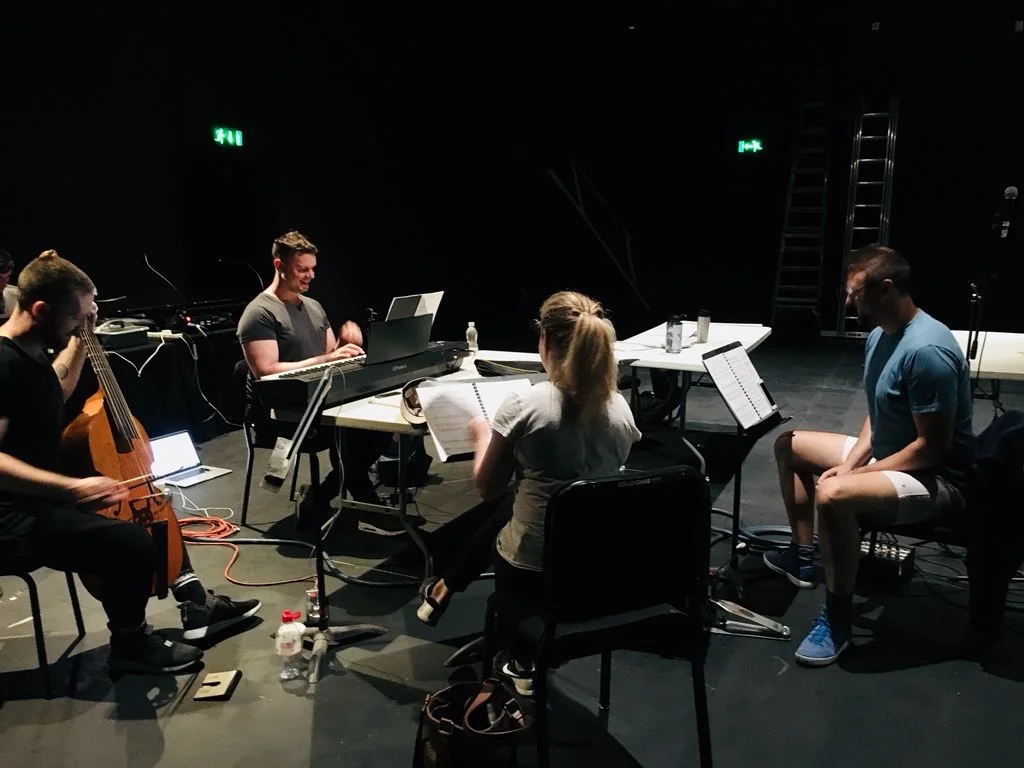Dear Marie Stopes
“A first-rate addition to the catalogue of one-act operas” - The Stage
A chamber opera by Alex Mills exploring sexuality and women’s bodily freedom - based on Marie Stopes' controversial sex manual from 1918 and the intensely moving archive of private letters it inspired. Featured in The Guardian, The Economist, Independent, Evening Standard, Stylist and The Stage.
"Still relevant and still controversial - ★★★★½"- Robert Hugill
"Music of supernatural poignance, melodic but otherworldly, narratively urgent but poetically impressionistic." - The Guardian
“A 45-minute musical meditation… the three voices twine with Rosenkavalier-like sensuality” - Opera magazine
Background
First published in 1918, Marie Stopes’ infamous sex manual, Married Love, revolutionised the way people understood desire, sexuality and sexual health. In response, Stopes received thousands of emotionally-charged letters from readers asking for more advice and sharing their individual stories, which are now stored in Wellcome Collection’s archives.
A century on, "Dear Marie Stopes" by Alex Mills explores this fascinating snapshot of a society’s sex life using extracts from the letters - with striking relevance to society today. The libretto uses letters from the archive carefully collated with archivist and gender and sexuality expert, Dr Lesley Hall, and writer and librettist, Jennifer Thorp, and the production has been sensitively directed by Nina Brazier.
The world premiere took place at The Wellcome Collection, August 2018, as part of Tête-à-Tête opera festival, and the opera was performed again at Kings Place in September 2019.
Scored for Soprano, Contralto, Countertenor, Viola da gamba, Cello, Percussion + electronics. Running time: 45 minutes
Trailer
Credits
Composer: Alex Mills
Producer: Kate Romano
Librettist: Jennifer Thorp
Director: Nina Brazier
Gender and sexuality consultant: Dr Lesley Hall
Soprano: Alexa Mason
Contralto: Jess Dandy
Countertenor: Feargal Mostyn-Williams
Viola da gamba: Liam Byrne
Cello: Lucy Railton + Clare O’Connell
Press:
- BBC Radio 4 Today Programme:
- The Economist Podcast:
- The Guardian (print + online) - "The opera about pioneer sexpert Marie Stopes"
- The Economist (online) - “Carnal knowledge: Thousands of people wrote to Marie Stopes about sex and birth control”
- The Independent (print + online) - "The best alternative hip opera shows to see this summer"
- The Independent (print + online) - "How sexual pioneer Stopes inspired a new opera"
- The Evening Standard (online) - "An opera about birth control advocate Marie Stopes is coming to London"
- Stylist (online): "How Marie Stopes revolutionised British Women's sex lives"
- Review by Robert Hugill (★★★★½): "Still relevant & still controversial: Alex Mills' Dear Marie Stopes at the Wellcome Collection"
Blog posts:








